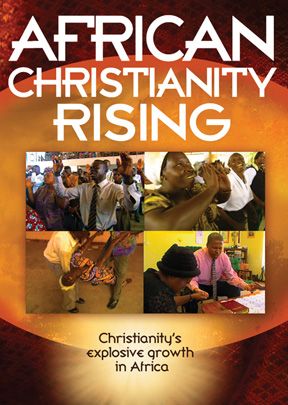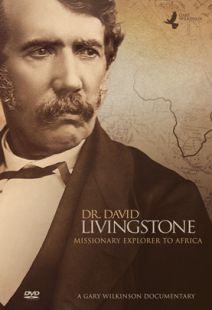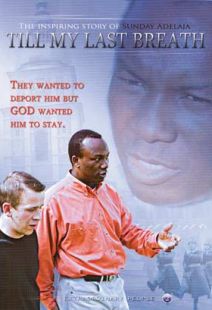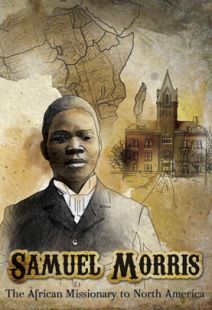African Christianity Rising (for Home Video Use Only) - .MP4 Digital Download
What does Christianity’s explosive growth in Africa mean for the church and for the world? This documentary immerses the viewer in the daily lives of African believers and the overwhelming joy of African-Christian worship.
- Item 501509V
- Region: All
- Media Type: Digital Video
- Running Time: 150 mins
Description
For institutional use carrying public performance rights for colleges, theological seminaries, and schools, contact James Ault Productions at (413)587-9871 or e-mail james.m.ault@gmail.com or visit www.jamesault.com.
At one time it was popular to refer to the “Christian West” and “Heathen Africa.” But while secularism takes hold in Europe and North America the Church in Africa is growing by leaps and bounds. What does Christianity’s explosive growth in Africa mean for the church and for the world? For over a decade, award-winning documentary filmmaker, author and scholar, James Ault has explored these questions by filming the stories of church communities and individual Christians in sub-Saharan Africa. This documentary immerses the viewer in the daily lives of African believers and the overwhelming joy of African-Christian worship. Commentary from leading thinkers on the subject shed light on its distinct features—on healing, demonic possession, and vibrant bodily worship, for instance—and on the opportunities and challenges it poses for the church worldwide.
(“African Christianity Rising) . . . offer a remarkable degree of insight into the way the Christian faith is developing in Africa .. .They pack more information and present it more tellingly than would vast areas of print.”
Andrew F. Walls, Founder, Centre for the Study of World Christianity, University of Edinburgh, & Founder, Journal of Religion in Africa
Editorial Reviews
Video Librarian - July/Åugust 2013
The explosive growth of Christian communities in Africa is the topic of the two documentaries compiled here—Stories from Ghana (which is in the western part of the continent) and Stories from Zimbabwe (some 2,000 miles away in the south)—from filmmaker James Ault. Both feature footage shot over a nearly 10-year period, which in the case of Zimbabwe makes a substantial difference, given the increasingly repressive rule of President Robert Mugabe and the fact that many of the interviewees had left the country (at least temporarily). Ault looks at various types of communities—mainstream denominations that include both old missionary foundations (often Presbyterian) and Roman Catholic dioceses, independent spiritual or prophetic groups that have sprung up locally, and Pentecostal and charismatic organizations of more recent vintage—interviewing their leaders, various theologians, and individual communicants. One interesting insight presented here is about the ways that Christianity has adapted to meet local needs in terms of the forms of service, which often incorporate African music and dance, and customs such as removing curses and evil spells. Emphasis is also placed on how endemic social problems are being addressed by both traditional indigenous faith systems and various Christian communities. The potential spread of African Christianity is undeniably great; although its compilation only focuses on two countries, it also contributes significantly to outsiders' understanding of the subject. Recommended.
Christianity Today, September, 2013
There are plenty of books describing the rapid growth of African churches. Those who can't travel to witness this firsthand, though, can find it difficult to grasp. But now we have a set of impressive films: James Ault's new series, African Christianity Rising. It is a superb resource for anyone who wants a front-row seat to the explosion of this part of global Christianity.
Ault, whose acclaimed 1987 PBS documentary, Born Again, set a new standard for covering American fundamentalism, began filming in African churches in the late 1990s. Funding hurdles made the process agonizingly slow, although the opportunity to revisit his subjects over several years gives us interesting insights into how their stories have developed.
In its final form, African Christianity Rising comprises two DVDs, one each on churches in Ghana and Zimbabwe. (An educational edition includes a treasure trove of additional materials). The films cover a wide spectrum of churches, each with its distinctive historical background and worship style. We see independent evangelical congregations, a classic African initiated church (Zimbabwe's Zion Apostolic Church), and a surging Pentecostal megachurch, Ghana's International Central Gospel Church, founded by Mensa Otabil. We also learn about Ghana's Roman Catholic Church and the Pentecostal Assemblies of Zimbabwe.
Much of the material, though, concerns what North Americans would regard as mainline Protestant congregations—Grace Presbyterian in Akropong, Ghana, and St. James United Methodist in Mutare, Zimbabwe. So initially familiar to North Americans, the "mainline" setting makes the differences all the more startling when they emerge.
What makes the series so powerful is the believers we meet. Yes, Ault does present learned experts, including the late and much-lamented theologian Kwame Bediako and Ghana's former Catholic archbishop Peter Sarpong. Both discourse eloquently on "inculturation," the process of taking faith out of the European envelope in which it was brought to Africa. But most of the people we hear are quite ordinary, and that is their glory.
Ethnographic films run the risk of making their subjects appear so alien that they seem to belong on another planet. Ault's work, in contrast, introduces people we come to care about and would love to have as our neighbors. We see the Zimbabwean Methodist congregation through the eyes of Dorcas Bwawa, a widowed schoolteacher facing difficult family circumstances, but who is nevertheless a towering figure in her church's lay leadership. We also come to know and like the church's female pastor, Tsitsi Moyo, who at first sight seems conventional enough as a thoughtful and dedicated leader.
Further conversations, though, supply a backstory startlingly different from anything American's might expect. Moyo turns out to be prophetic royalty, the daughter of a charismatic healer from the profoundly African Zion Apostolic Church.
For me, the best single feature of the series is its seamless integration of the thoroughly familiar with quite different African contexts and assumptions. Just when we become comfortable with these pleasant Methodists or Presbyterians, we start to count the ways in which their world is not that of most American congregations.
For one thing, we are struck by the sheer size of the African churches, not to mention their numerical expansion. We might expect mushrooming growth in a Pentecostal megachurch, but the mainliners are just as successful. We first see Grace Presbyterian as a church plant, and return to it several years later when it's becoming what we might consider a megachurch, but which in Africa is a normal congregation. If the concept of women's lay leadership is quite familiar, we are still taken aback by the near-military organization (complete with uniforms) that women's groups have developed in the Zimbabwean Methodist Church.
We also learn the very different boundaries that divide denominations in African contexts. Decades ago, scholars coined the term "African Independent Church" to characterize new prophetic groups grounded in local traditions. Today, though, Methodists, Presbyterians, and Catholics are all completely independent, and their worship and church music proclaim them unquestionably African. If viewers should take away one point from the series, says Ault, it is that "Christianity's explosive growth in Africa depends upon the powerful and inexorable process of believers' rooting their faith more authentically in their own cultures."
Let me stress a point about music, one that Ault brings out expertly. I wonder whether any era of church history—even the Protestant Reformation, with its profusion of hymns and psalm settings—has been so immersed in music and song as contemporary Africa. Groups both formal and informal break into hymns and spiritual songs with little prompting. Believers' daily lives are saturated with songs of God and faith.
Across the denominational frontiers, too, we see consistent fascination with ministries of deliverance and spiritual warfare, whether "mainline" or Pentecostal. Repeatedly, believers turn to their churches for help with problems that we might frame in social or family, rather than explicitly spiritual, terms—unemployment, substance abuse, and family stresses. While churches supply the material help they can—often with startling generosity—at least part of their response involves spiritual relief, with deliverance and exorcism. Believers understand curses to be routine and frequent obstacles to health and harmony.
Exorcism episodes appear so regularly in the films that we begin to take them for granted. For many American viewers, the shock is not seeing an exorcism in its own right, but realizing that the participants are pleasant, smart, and quite ordinary church members whose company we had been enjoying just minutes before. And they're...Presbyterians? As Ault says, starkly, "You can't be a minister and not heal."
Ault makes no claim to be offering a comprehensive account of Christianity in the specific countries he visits, and certainly not Africa as a whole. He does not address some topics in church life that concern many American Christians, such as attitudes toward homosexuality. Nor does he touch on relations with Islam, a matter of lively concern to Ghanaian Christians.
I asked Ault about a couple of issues that the films treat lightly. One involves politics in Zimbabwe, which for 30 years has been in the hands of a ruthless despotism that has devastated civil society and extinguished any semblance of a functioning economy.
Obviously, Ault did not want his subjects discussing political topics that could get them into trouble with the regime's thugs. But he also reminded me that in the context of the revolutionary growth of Christianity in black Africa, our justified worries about political repression can easily become the "tail that wagged the dog." Certainly even well-informed Westerners who turn to mainstream media to learn about Zimbabwe are likely to know far more about the Mugabe regime than about the extraordinary growth of the church that has occurred through it all.
Ault has a simliar attitude to another area of relative silence in the films, the so-called prosperity gospel. At least some of the appeal of Africa's booming Pentecostal churches lies in teachings that faith reliably produces wealth and health. That teaching is proclaimed in the mass meetings and crusades that are now such a staple of African urban life. One of the best studies of modern African religion, Paul Gifford's Ghana's New Christianity, focuses heavily on prosperity teachers, including Otabil himself.
Ault pays little attention to these themes, chiefly because he is anxious not to let them distract from the main argument. "Doesn't Africa get enough bad press?" All eras of Christian history have thrown up sharks and showmen, "self-aggrandizing abusers," so should we really concentrate so mercilessly on isolated African examples?
Ault also observes that prosperity preachers cover a wide spectrum. Some really try to improve the well-being of their congregations, and at the same time build their communities and nations. In one independent group that the film depicts at length, members learn that God gives prosperity, but in nuanced and practical terms. The "are also coached in good business practices and offered microfinancing for their enterprises." Other observers might treat these matters differently, of course, and their concerns should be addressed in discussions arising from the films.
In any event, no criticism that I could raise detracts in the slightest from the magnificent achievement that these films represent. They are informative, inspiring, and a delight to watch. There really is nothing like them. Now that we have them, there is truly no reason not to experience the astonishing phenomenon that is African Christianity, especially with such a generous and sensitive observer behind the camera.
Customer Reviews
Andrew F. Walls, Centre for the Study of World Christianity - Remarkable Degree of Insight.
“These two films . . . offer a remarkable degree of insight into the way the Christian faith is developing in Africa, perhaps its most critical contemporary theatre. They show the range of religious activity, tradition and innovation; but they also indicate determining conditions and prevailing directions. The representative African commentators are of the highest quality. I have watched these films with audiences of specialist scholars, of students at various levels and of general public. In every case the effect has been striking, powerful and clarifying. These films pack more information and present it more tellingly than would vast areas of print. Their potential for good is immense.”
Philip Jenkins, Pennsylvania State University - Superlative Examples of Documentary Filmmaking.
“Magnificent and often really moving. . . I know of no comparable material that raises so many of the critical issues in contemporary African Christianity . . . By far the most useful aspect is that all these ideas and beliefs - which Americans might find strange or off-putting - are presented by likable and intelligent interview subjects: the ideas are, in short, given human faces. I have vastly enjoyed using these films in undergraduate classes, where they evoke intense interest and stir excellent discussions. But I find it hard to think of any audience, whether professional, academic or political, that could not benefit from these superlative examples of documentary filmmaking.”
Olufemi Vaughan, Bowdoin College - Impressive!
“Teaching how Africa's world religions intersect with indigenous belief systems pose daunting pedagogical challenges, especially in the West. Ault’s impressive documentaries effectively challenge the sensationalism notoriously persistent even among intelligent lay learners. They deftly engage the creative agency among the masses of African religious adherents in national and transnational contexts and are essential teaching tools in African studies.”





